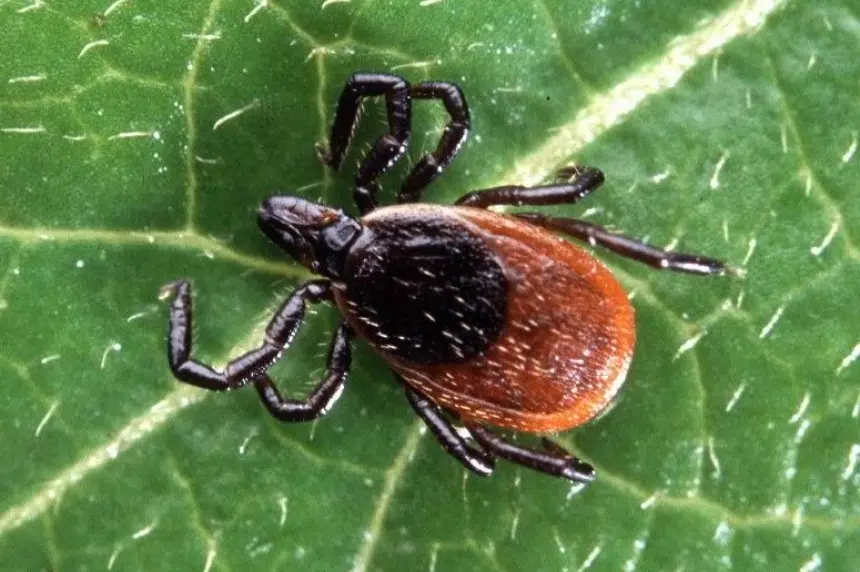Triant Stuart believes he contracted Lyme disease after being bitten by a tick at a Saskatoon golf course.
The first symptoms started appearing in 2015, but it would be months before he would get the help he needed.
Stuart’s condition worsened to the point where he was having trouble doing everyday tasks he once took for granted, such as handwriting.
He later developed a stutter and his memory would slip. The seriousness of the situation became apparent on a day he helped chaperone a school trip to Table Mountain ski hill from Willowgrove School.
“I was one of the parents who was supposed to drive the safety vehicle behind. I ended up in Rosetown, on the wrong highway, not knowing why I was there,” Stuart said. “At the time I didn’t tell anybody this because I didn’t want to lose my licence.”
Stuart was left without any clear answers. A doctor told him he might have early onset Parkinson’s, based on physical twitching he was displaying and his age.
Later, Stuart was told he might have multiple sclerosis.
Doctors even suggested he might have repetitive head trauma because he had been punched in the head while playing hockey.
Stuart said his symptoms were getting progressively worse during this time. He was starting to worry about his livelihood and put the shares to his business up for sale.
“The reality is, when you’re so confused that you are unable to co-ordinate something as simple as turning on the remote, it’s very tough to run a business,” he said.
Stuart said his wife eventually convinced him to go beyond Saskatchewan borders in search of answers.
They contacted a clinic in Arizona and had a blood test done, which came back positive for Lyme disease.
“So now we have a positive Lyme test, which is awesome,” Stuart said, adding he’s finally able to treat his symptoms.
But the Saskatoon man worries there are other people in Saskatchewan who are in the situation he was in, who aren’t getting the help they need.
“The Saskatchewan test gives you false negatives, it’s an old test and it only tests for one strain. There’s 30 some different strains of co-infection,” he said.
“That’s where I would like to help. All I ask from the health minister, all I ask from the government, is to give these people an opportunity to get tested.”
Low risk in Saskatchewan: expert
Dr. Neil Chilton, a tick expert at the University of Saskatchewan, spoke with 650 CKOM in May. At the time he said the risk for people contracting Lyme disease in Saskatchewan is low – but not necessarily zero.
Blacklegged ticks, or deer ticks, are the main carriers of Borrelia bacteria, which causes Lyme disease.
The majority of ticks found in Saskatchewan are the American dog tick, which is not capable of transmitting the bacteria to people.
“I get 3,000 ticks a year and see eight of the ticks who can potentially have Lyme and only 10 per cent of those carry the bacteria,” he said.
Since 2008, more than 21, 000 ticks have been collected and identified in Saskatchewan. Fifty were blacklegged ticks, and of those 50, only four tested positive for Borrelia bacteria.
On May 30, Canada’s federal health minister announced $4 million investment to establish a Lyme disease research network, with the aim of generating new knowledge to improve diagnosis and treatment.











